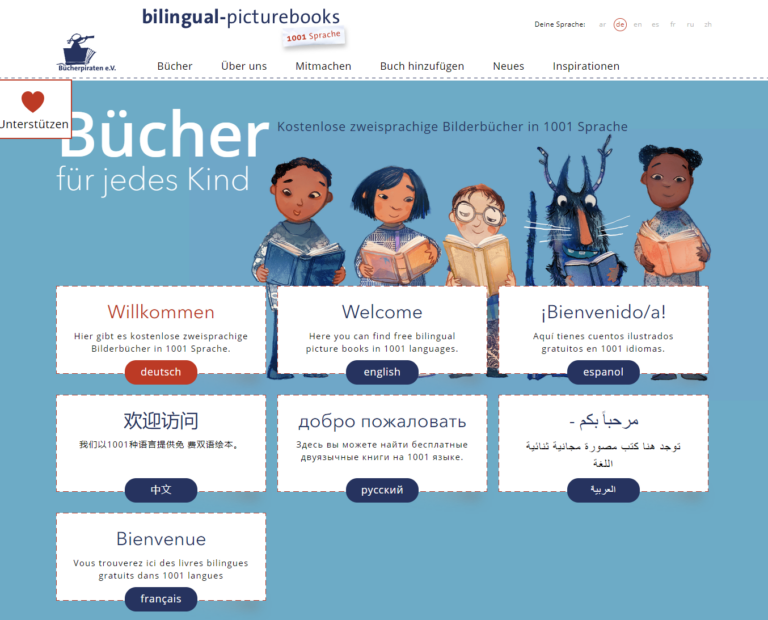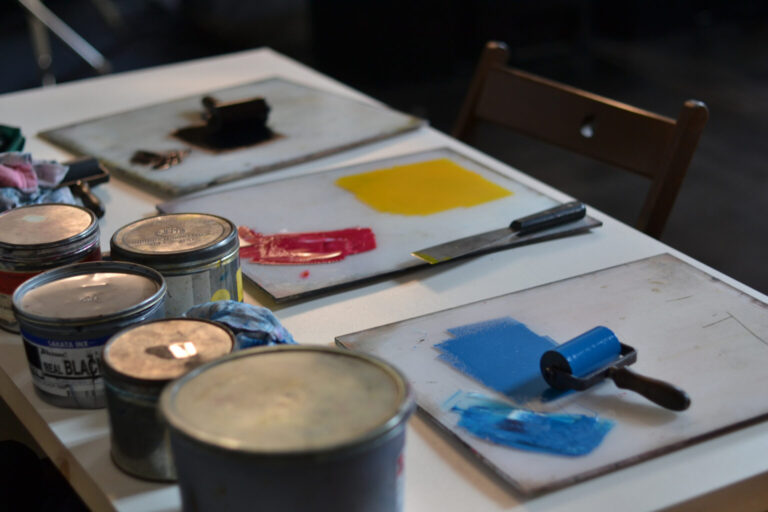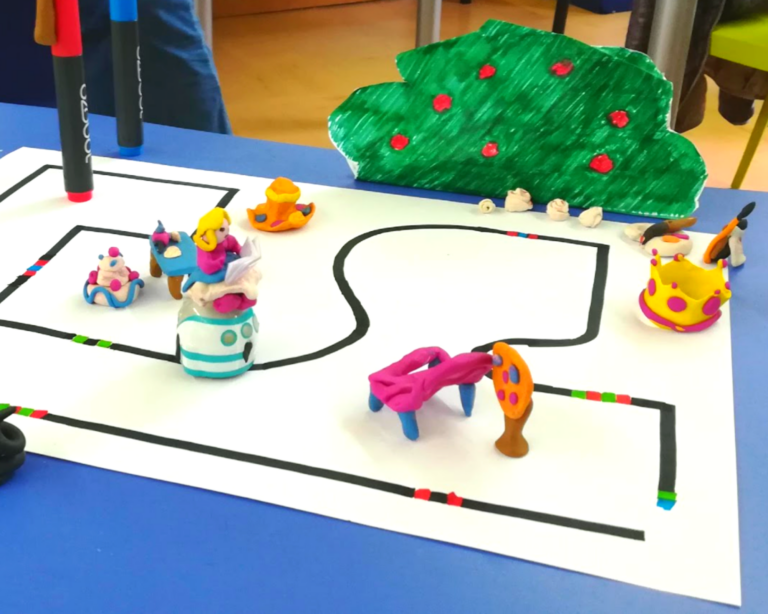WEBINAR: Educational Responses to COVID-19 – ENGLISH VERSION
To sign up, click here!
- As of today, May 4th, schools in Italy have already been closed for more than 2 months due to the measures made necessary be the COVID-19 pandemic. As around half of the world’s population is now on lockdown, 73.5% of all enrolled learners in the world are currently being affected by school closures. The virus has already claimed almost 29,000 lives in our country alone.
The crisis we are going through flusters and frustrates us. It makes us feel powerless. As we cannot control the circumstances we are in, we are left to attempt to, at least, understand them.
At Fondazione per la Scuola della Compagnia di San Paolo, the education branch of one the largest charities in Europe, we have spent the last 3 years delivering a city-wide project on digital pedagogy and educational innovation. This has lead us to think deeply about the role we and other philanthropic organizations can have in mitigating the effects of the current emergency. I will try to summarise our reflections in this article, in hope that they could be of use to organizations facing the same challenges in other countries.
While schools are closed, teaching and learning continue to happen, thanks to the incredible efforts of parents and teachers to guarantee remote schooling. While the resourcefulness and creativity of teachers is truly striking, the limited scope and breadth of remote schooling highlight all those aspects of education which distance makes impossible to replicate.
What is school for? For the purpose of this article, I will focus on two of its main functions, then proceed to reflect on how these can be delivered remotely and, lastly, what organizations like ours can do to help.
School is a place where children go to acquire skills and knowledge. Also, it is the community they belong to, the place where they see their friends, where they find comfort, and where they learn to coexist with others.
Of these two functions, the first is clearly the one that can be more realistically delivered remotely. It is also where we see teachers concentrating their efforts. To this end, teachers are quickly adopting broadcasting technologies (Skype, Zoom, Google Hangouts, etc.) to impart lessons to their students through virtual learning environments (Google Classroom, Edmodo, WeSchool, etc.). Many teachers were already familiar with these technologies, but they had never been employed on such a massive scale before.
Broadcasting, video conferencing and chat rooms allow teachers and students to keep working together even while far away. This would not have been possible before the rise of free and easy to use EdTech solutions in the past decade. Nonetheless, remote learning which is conducted in this way has several issues which must be underlined:
- Not all teachers have the skills, equipment, and internet connection necessary to manage broadcasting technologies and virtual learning environments. The resources provided to teachers by the Prime Minister’s March 17th decree represents an important step to help teachers get at least the equipment they need to continue teaching.
- Not all students have equal access to devices and connectivity. Furthermore, the impact of remote learning on educational inequality is not just an issue of Internet access. As highlighted by Forum Diseguaglianze e Diversità, remote learning disproportionately affects socio-economically disadvantaged students regardless of their access to an Internet connection. Nonetheless, 2019 data tells us that only 76.1% of Italian families have Internet access at home, and only 74.7% has a broadband connection. The 85 million euros provided through the aforementioned decree can represent a way to reach the 25.3% of families who currently lack an Internet connection at home.
- When it comes to remote learning and to younger children especially, families play a very important role in providing adequate spaces, support and mediation between teachers and children. Their ability to do this depends on the amount of time they have away from work, whether they are working from home or not, how accustomed they are to communicating with teachers and helping with schoolwork.
- Disadvantaged students are disproportionately impacted by school closures. This is both due to a lack of access to technology and connectivity and to a broader range of environmental factors (the assistance they receive from their families, the privacy and space they have, their reliance on teaching assistance of other forms of special support, etc.) which make it especially hard for disadvantaged students to participate fruitfully in remote learning.
- Broadcasted lessons often resemble lecture-style lessons, though worse: more boring, even less interactive. Collaborative learning (teacher-student and student-student interaction as a driver of learning) and learning-by-doing (rather than simply by absorbing information) seem to be very hard to replicate remotely. Paradoxically, remote learning is both technologically cutting edge and pedagogically conservative.
Worse still, the social and pastoral functions of school seem almost impossible to maintain remotely. Surely remote lessons and continuous online interaction with classmates and teachers can help, but this can only amount to a tiny fraction of the idea of community which schools aspire to. When schools lose their physicality, the students most in need suffer most of all: those with special educational needs and disabilities, those with limited access to technology, those from underserved communities.
The continuing closure of schools is causing damage which we cannot entirely assess. Its impact goes beyond attainment, encompassing children’s wellbeing, their physical and mental health, their socialization, the overall cohesion of educational communities. A better understanding of the damage done will be necessary to direct our effort once the acute phase of the healthcare crisis is behind us.
Educational inequality and obsolete pedagogy are not new to us. These are chronic problems, exacerbated and made more visible by the current crisis. Consequently, we will face them as we have always done: working side by side with teachers. These are the most creative and flexible resource we can tap into. To do this, we have been in constant contact with the 2000+ teachers in our network, crowdsourcing lesson plans and teaching strategies which bring together remote learning and innovative pedagogy.
Starting on March 4th, we have organizing and delivered 30 webinars, hosted by teachers, for teachers (with an average attendance of 1500 teachers per webinar). These webinars feature the lesson plans we are gathering, as well as tutorials on the most common and easiest to solve barriers to entry to broadcasting technologies and online classroom management. They represent a platform for teachers to support each other – a lifeline in these difficult times. We will continue to organize these webinars at least until schools reopen.
These actions are necessary but insufficient to contrast the damage caused by the current emergency and its effects on entrenched educational inequality, which is bound to worsen in the coming months.
Aware of the inevitability of negative impacts on disadvantaged students, we are working on two fronts: supporting teachers working in the remote learning frontlines today; designing solutions to be implemented once schools are at least partially open again.
To ensure the efficacy of these solutions, we must attempt to answer the following three questions:
- How can we find out more about the extent to which school closures are impacting disadvantaged students
- How can we direct our efforts towards actions which will maintain their relevance and value when schools are open again?
- What can we do, starting from now, to make sure that whoever has lost progress because of school closures can get back on track once schools are open again?
We believe that we cannot answer these questions alone. Instead, we we wish to foster dialogue and debate between organizations who we share our concerns around equitable education and inclusion, and who are involved in the design and implementation of actions aimed at supporting teachers and learners in these difficult times.
To this end, we have invited some of our friends and collaborators to come together and share insights around their current and future responses to COVID-19. This conversation will take place through a public webinar, Educational Responses to COVID-19, which will feature the following speakers:
- Anna Ascani – Undersecretary – Ministry of Education (Italy)
- Stefania Giannini – Assistant Director-General for Education – UNESCO
- Wendy Kopp – CEO and Co-Founder – Teach for All
- Lorenzo Benussi – Chief Innovation Officer – Fondazione per la Scuola della Compagnia di San Paolo
- Asmaa E. Al-Fadala – Director of Research and Content Development – WISE – Qatar Foundation
- Toby Baker – Programme Manager – Nesta
- Francesco Profumo – President – Fondazione Compagnia di San Paolo
The webinar will be held in English on May 14, from 15:30 to 17:30 GMT+2.
To sign up, click here!
Crisis mark a divide between a before and an after. We believe that the after must be characterized by a deep and shared reflection which goes beyond the temporary issue of remote learning and critically examines and re-defines our entire socio-educational paradigm. The recent boom in Edtech adoption caused by the current emergency may be a starting point to design processes and strategies for personalized learning and pedagogical innovation, as long as it is part of a larger puzzle: the construction of an educational system which can allow every child to thrive.
Though school systems vary greatly from one another, teacher creativity and resourcefulness seem to cross borders. We strongly advise our peers in the education field to harness, amplify and catalyze teacher insight and creativity around the identification and dissemination of strategies which could be of use. Finally, we suggest a particular attention to the effects that the closing of schools may have on educational inequality.
- A version of this article appears in Tuttoscuola



